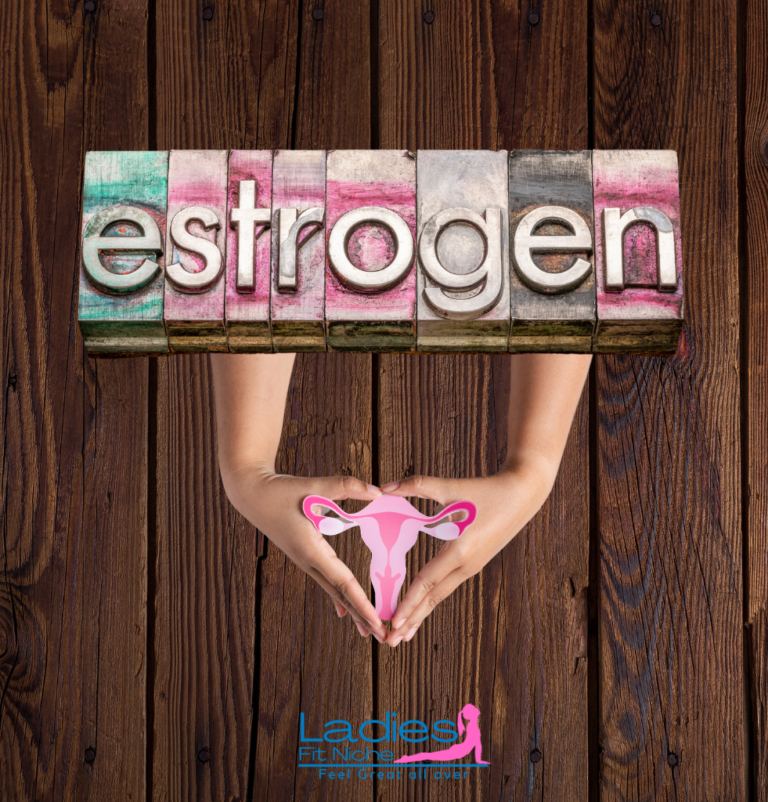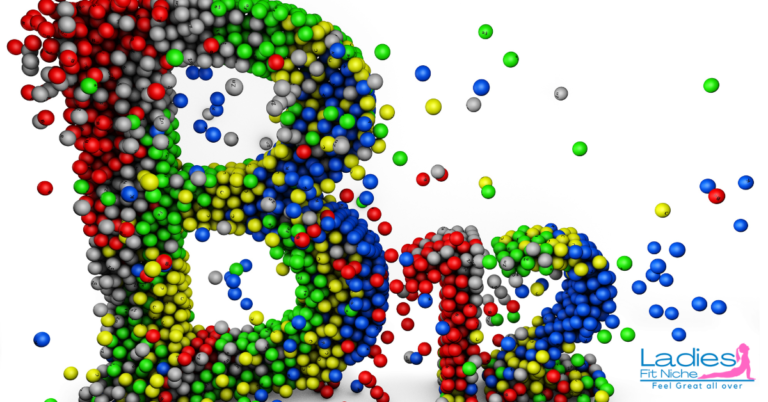Does Vitamin B12 Increase Estrogen?
A question that many menopausal women asks is “Does vitamin B12 Increase Estrogen? In this article, we will explore whether vitamin B12 has any impact on estrogen levels in the body. We will discuss the role of vitamin B12 in the body, the functions of estrogen, and any potential connections between the two. By the end, you will have a better understanding of the relationship between vitamin B12 and estrogen and whether vitamin B12 can actually increase estrogen levels.
What is Vitamin B12?
Vitamin B12, also known as cobalamin, is a water-soluble vitamin that plays a vital role in the normal functioning of the brain, nervous system, and the production of blood cells. It is an essential nutrient that your body needs in small amounts to maintain good health.
What is Estrogen?
Estrogen is a group of hormones primarily found in females but also present in males to a lesser extent. It is responsible for the development and regulation of the female reproductive system and secondary sex characteristics. Estrogen plays a crucial role in the menstrual cycle, pregnancy, and bone health.

The Relationship Between Vitamin B12 and Estrogen
Vitamin B12 and estrogen are two distinct substances that serve important functions in the body. While they may not directly interact with each other, research suggests that there is a potential relationship between them.
Effects of Vitamin B12 on Estrogen Levels
Some studies have indicated that vitamin B12 may have an impact on estrogen levels in the body. However, the exact mechanism behind this relationship is not yet fully understood.
One possible effect of vitamin B12 on estrogen levels is its role in the production and metabolism of certain enzymes involved in hormone regulation. Vitamin B12 is required for the proper functioning of these enzymes, and any deficiency in the vitamin could potentially affect estrogen synthesis and metabolism.
Research on the Connection Between Vitamin B12 and Estrogen
Several research studies have investigated the potential relationship between vitamin B12 and estrogen. These studies have provided valuable insights into the effects of vitamin B12 on estrogen levels and the subsequent health implications.
One study conducted on postmenopausal women found that vitamin B12 deficiency was associated with higher levels of estrogen. The researchers hypothesized that the deficiency might lead to altered estrogen metabolism, contributing to hormonal imbalances and associated health issues.
Another study explored the effects of vitamin B12 supplementation on estrogen biomarkers in women with polycystic ovary syndrome (PCOS). The findings revealed that vitamin B12 supplementation significantly decreased estrogen levels, suggesting a potential role of vitamin B12 in regulating estrogen in individuals with PCOS.
The research on the connection between vitamin B12 and estrogen is still ongoing, and further studies are needed to establish a clearer understanding of this relationship.
Effects of Vitamin B12 on Estrogen Levels
Understanding the potential impact of vitamin B12 on estrogen levels is essential in assessing its role in maintaining hormonal balance in the body.
Potential Impact of Vitamin B12 on Estrogen Production
Vitamin B12 is involved in the production of enzymes that regulate hormone synthesis and metabolism, including estrogen. Adequate levels of vitamin B12 are necessary for optimal functioning of these enzymes, ensuring the proper production and regulation of estrogen.
A deficiency in vitamin B12 could potentially disrupt this process, leading to an imbalance in estrogen levels. This may have implications for reproductive health, as estrogen plays a crucial role in the menstrual cycle and fertility.
Influence of Vitamin B12 on Estrogen Metabolism
In addition to estrogen production, vitamin B12 also plays a role in estrogen metabolism. Estrogen metabolism involves the conversion of estrogen into other forms that can be eliminated from the body.
Vitamin B12 is required for the proper functioning of enzymes involved in estrogen metabolism. A deficiency in vitamin B12 may impair the metabolism of estrogen, leading to an accumulation of estrogen in the body. This can potentially contribute to hormonal imbalances and associated health issues.

Research on the Connection Between Vitamin B12 and Estrogen
The relationship between vitamin B12 and estrogen has been the subject of scientific investigation. Several studies have shed light on the potential connection between these two substances.
Studies Investigating the Relationship Between Vitamin B12 and Estrogen
A study published in the Journal of Women’s Health examined the association between vitamin B12 status and estrogen levels in a group of premenopausal women. The findings suggested that vitamin B12 deficiency was associated with higher estrogen levels in this population.
Another study conducted on a group of postmenopausal women investigated the effects of vitamin B12 supplementation on estrogen biomarkers. The results indicated that vitamin B12 supplementation led to a decrease in estrogen levels, suggesting a potential role of vitamin B12 in estrogen regulation.
Findings and Results from Scientific Research
The research conducted so far has provided valuable insights into the potential effects of vitamin B12 on estrogen levels. However, it is important to note that the findings are not conclusive, and more research is needed to establish a definitive relationship between vitamin B12 and estrogen.
Does Vitamin B12 Increase Estrogen Levels? Read more Here
Health Benefits of Vitamin B12
Vitamin B12 offers various health benefits beyond its potential impact on estrogen levels. It plays a crucial role in the normal functioning of the body and is essential for overall well-being.
Role of Vitamin B12 in the Body
Vitamin B12 is involved in various physiological processes, including:
- Red blood cell production: Vitamin B12 is necessary for the production of healthy red blood cells, which carry oxygen throughout the body.
- Nervous system function: It supports the proper functioning of the brain and nervous system.
- DNA synthesis: Vitamin B12 plays a role in the synthesis of DNA, the genetic material in our cells.
- Energy production: It contributes to the metabolism of carbohydrates and fats, helping convert food into energy.
Importance of Adequate Vitamin B12 Levels
Maintaining adequate levels of vitamin B12 is crucial for overall health and well-being. A deficiency in vitamin B12 can lead to various health issues, including:
- Anemia: Without enough vitamin B12, the body cannot produce enough healthy red blood cells, leading to anemia.
- Neurological problems: Vitamin B12 is necessary for the proper functioning of the nervous system. Deficiency can cause symptoms such as tingling, numbness, and difficulty with memory and cognition.
- Fatigue and weakness: Inadequate vitamin B12 levels can result in low energy levels, fatigue, and muscle weakness.
Click Here to Learn about the Top 5 Best Vitamin B12 Supplements for Energy

Health Risks of Estrogen Imbalance
Estrogen imbalance can have significant health implications, particularly in women. Both high and low estrogen levels can lead to various symptoms and health conditions.
Negative Effects of High Estrogen Levels
Excessive estrogen levels can contribute to the development of certain health issues, including:
- Hormone-sensitive cancers: High estrogen levels have been linked to an increased risk of hormone-dependent cancers, such as breast and endometrial cancer.
- Weight gain: Elevated estrogen levels may be associated with weight gain and difficulty losing weight.
- Mood swings and irritability: Excess estrogen can disrupt hormone balance, leading to mood swings, irritability, and emotional instability.
- Irregular menstrual cycles: High estrogen levels can cause irregular or heavy menstrual bleeding.
Symptoms and Conditions Related to Estrogen Imbalance
Estrogen imbalance can cause a range of symptoms and conditions, including:
- Menstrual irregularities: Imbalances in estrogen can disrupt the menstrual cycle, leading to erratic or absent periods.
- Infertility: Estrogen imbalances can affect reproductive health and fertility.
- Osteoporosis: Low estrogen levels can contribute to decreased bone density and an increased risk of osteoporosis.
- Mood disorders: Hormone fluctuations can impact mood and contribute to the development of mood disorders such as depression and anxiety.
- Skin changes: Estrogen imbalances can result in skin changes, including dryness, acne, and premature aging.
Factors Affecting Estrogen Levels
Estrogen levels can be influenced by various factors, including diet, lifestyle, and hormonal influences.
Diet and Lifestyle Factors
Certain dietary and lifestyle choices can affect estrogen levels in the body. Some factors that may impact estrogen include:
- Diet: A diet high in processed foods and unhealthy fats may contribute to high estrogen levels. On the other hand, a diet rich in fruits, vegetables, and whole grains may support a healthy estrogen balance.
- Physical activity: Regular exercise can help regulate estrogen levels. Sedentary lifestyle and obesity are associated with higher estrogen levels.
- Alcohol consumption: Excessive alcohol consumption may disrupt hormone balance and contribute to higher estrogen levels.
Hormonal Influences
Hormonal influences can also play a role in estrogen balance. Factors that can affect estrogen levels include:
- Menopause: Estrogen levels naturally decline during menopause, leading to various symptoms and health changes.
- Hormonal medications: Certain medications, such as hormone replacement therapy and birth control pills, can affect estrogen levels.
- Stress: High levels of stress can disrupt hormone production and balance, potentially impacting estrogen levels.
Recommended Vitamin B12 Dosage
The daily recommended intake of vitamin B12 may vary depending on factors such as age, sex, and individual health needs.
Daily Intake Recommendations for Vitamin B12
The recommended dietary allowance (RDA) for vitamin B12 is as follows:
- Infants (0-6 months): 0.4 micrograms (mcg)
- Infants (7-12 months): 0.5 mcg
- Children (1-3 years): 0.9 mcg
- Children (4-8 years): 1.2 mcg
- Children (9-13 years): 1.8 mcg
- Adolescents (14-18 years): 2.4 mcg
- Adults: 2.4 mcg
- Pregnant women: 2.6 mcg
- Breastfeeding women: 2.8 mcg
Sources of Vitamin B12
Vitamin B12 is primarily found in animal-based foods, including:
- Meat: Beef, pork, lamb, and poultry are rich sources of vitamin B12.
- Fish and seafood: Salmon, trout, tuna, and shellfish contain significant amounts of vitamin B12.
- Dairy products: Milk, cheese, and yogurt are good sources of this vitamin.
- Eggs: Egg yolks are rich in vitamin B12.
- Fortified foods: Some fortified breakfast cereals, nutritional yeast products, and plant-based milk alternatives contain added vitamin B12.
Conclusion
While the relationship between vitamin B12 and estrogen is still being explored, research suggests that vitamin B12 may have an impact on estrogen levels in the body. However, the exact mechanisms behind this relationship are not fully understood.
Maintaining adequate levels of vitamin B12 is crucial for overall health, as this vitamin plays a role in various physiological processes, including red blood cell production, nervous system function, DNA synthesis, and energy production.
Estrogen balance is also essential for overall health, particularly in women. Imbalances in estrogen levels can lead to various health issues, including hormone-sensitive cancers, weight gain, mood disorders, and menstrual irregularities.
Factors influencing estrogen levels include diet, lifestyle choices, and hormonal influences. Ensuring a balanced diet, regular physical activity, and managing stress levels can help support optimal estrogen balance.
To ensure adequate vitamin B12 intake, it is recommended to consume foods rich in this nutrient or consider supplementation if necessary. However, it is important to consult a healthcare professional before starting any new supplements.
In conclusion, while the exact relationship between vitamin B12 and estrogen is still being studied, maintaining adequate vitamin B12 levels is important for overall health, and a balanced estrogen level is crucial for the well-being of both men and women.







